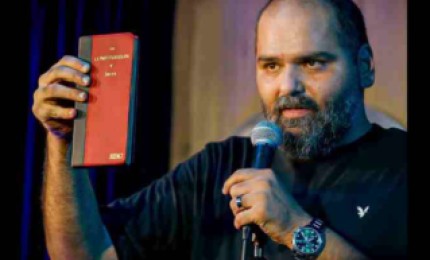In the world of acting, various techniques and methods are employed to bring a character to life. While methods like Meisner, Stanislavski, and Strasberg have their own merits, one aspect that often goes unnoticed but is crucial for an actor's development is Scene Study. This practice is more than just rehearsing lines; it's about delving deep into the script, understanding the characters, and bringing emotional depth to a performance. In this comprehensive article, we will explore what Scene Study is, its various components, and why it's indispensable for anyone serious about acting.
Scene Study is a foundational exercise in the realm of acting, often taught in acting classes and workshops. It involves dissecting a scene from a script to understand its various elements—dialogue, character motivations, emotional arcs, and more. Unlike merely memorizing lines, Scene Study requires you to analyze the script, asking questions like, "Why does the character say this?" or "What is the emotional undertone here?" This level of analysis helps you as an actor to not just understand the character you're portraying but also the dynamics between different characters in the scene. It's akin to peeling layers off an onion; each layer represents a new facet of the character or the scene that you might not have noticed at first glance. By engaging in Scene Study, you're not just preparing for a role; you're engaging in a form of research, one that allows you to bring a multi-dimensional, nuanced performance to the stage or screen.
One of the primary components of Scene Study is script analysis. This involves reading the script multiple times, each time with a different focus. Initially, you might read to understand the plot. The next read could be to understand your character's journey throughout the script. Subsequent reads could focus on the subtext, the emotional undertones, or even the historical and cultural context of the script. This thorough analysis is crucial because every script is a treasure trove of information. The more you dig deep, the more gems you find—be it a subtle character trait or a hidden motive. Script analysis in Scene Study is not just about understanding what is explicitly stated in the script; it's about reading between the lines to grasp what is implied or unsaid. It's this depth of understanding that allows you to bring authenticity and emotional depth to your performance.
Scene Study is not just an intellectual exercise; it's an emotional journey. By dissecting a scene, you get to explore the emotional landscape of your character. What are their fears, desires, and motivations? How do they react under stress or when faced with a dilemma? Understanding these emotional nuances is crucial for delivering an authentic performance. It's not enough to just 'act' sad or happy; you need to 'feel' the emotions your character is going through. This emotional depth is what makes a performance believable and relatable. Scene Study provides you with the tools to explore these emotions in a controlled environment, allowing you to experiment with different emotional tones and reactions. It's like a rehearsal for your emotional range, preparing you for the complexities of live performance.
Another critical aspect that Scene Study helps you explore is character development. Every character in a script has an arc, a journey they undertake from the beginning to the end of the story. Understanding this arc is vital for delivering a performance that resonates with the audience. Scene Study allows you to break down this arc into smaller, manageable parts, exploring how your character evolves with each scene. This granular focus helps you understand the subtleties of your character's development, be it a gradual transformation or a sudden change. It also helps you identify the pivotal moments in the script that are crucial for your character's evolution. By understanding these key moments, you can emphasize them in your performance, making the character's journey more impactful and engaging for the audience.
Scene Study is often considered the rehearsal before the actual rehearsal. It's where you experiment, make mistakes, and learn. By the time you get to the actual rehearsal or performance, you are already well-versed with the scene, the character, and the emotional undertones. This preparation allows you to focus on other aspects of your performance, like stage presence, interaction with other actors, and improvisation. It's like going into an exam well-prepared; you can focus on writing good answers rather than trying to remember what you studied. Scene Study equips you with the confidence and knowledge to tackle the challenges of live performance, making it an invaluable tool for every actor.
Scene Study is more than just an acting exercise; it's a comprehensive approach to understanding the art of performance. It combines script analysis, character development, emotional depth, and rehearsal to provide a holistic training ground for actors. Whether you're a budding actor looking to break into the industry or a seasoned professional aiming to refine your craft, Scene Study offers invaluable insights and skills that can elevate your performance. It teaches you to look beyond the lines, to explore the unspoken emotions and subtle nuances that bring a character to life. In a profession where the competition is fierce, and the margin for error is slim, Scene Study gives you the edge you need to stand out and make your mark.

15 Ways to Make Money as a Singer: A Complete Guide to Monetizing Your VoiceEarning money as a singer requires more than just talent, it demands creativity, persistence, and a willingness to explore...
Read Blog
When Kunal Kamra's Humor Got Him Into Trouble: A Deep Dive into the Controversies of India's Most Fearless ComedianKunal Kamra Controversy: Laughter, Lawsuits, and the Limits of Free SpeechStand-up...
Read Blog
The Oscar race is always full of drama, but this year? It’s absolute chaos. From shocking controversies to unexpected winners, the battle for Best Picture at the 2024 Academy Awards has taken...
Read Blog
In the ever-changing landscape of entertainment, few transformations have been as dramatic and swift as the rise of internet comedians. What began as a platform for amateur funny videos has evolved...
Read Blog
Introduction: In the competitive world of entertainment and talent, having the right representation can make all the difference in launching and sustaining a successful career. Whether you're...
Read Blog.jpg)
While the world of modelling often dazzles with glitz and glam, it's also critical we discuss its darker shades, pulling the curtain back on some challenging realities. Today, let's embark on...
Read Blog